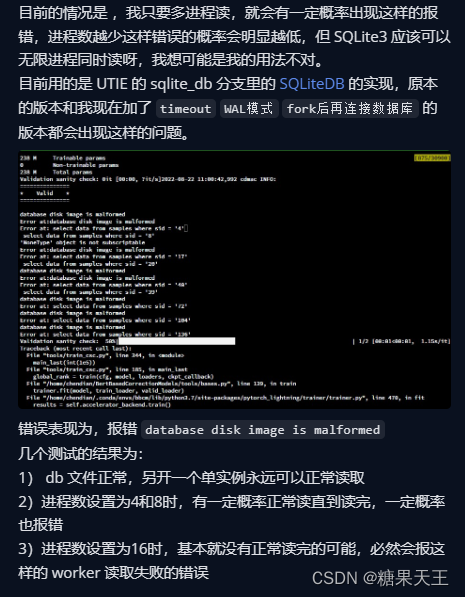1
2
3
4
5
6
7
8
9
10
11
12
13
14
15
16
17
18
19
20
21
22
23
24
25
26
27
28
29
30
31
32
33
34
35
36
37
38
39
40
41
42
43
44
45
46
47
48
49
50
51
52
53
54
55
56
57
58
59
60
61
62
63
64
65
66
67
68
69
70
71
72
73
74
75
76
77
78
79
80
81
82
83
84
85
86
87
88
89
90
91
92
93
94
95
96
97
98
99
100
101
102
103
104
105
106
107
108
109
110
111
112
113
114
115
116
117
118
119
120
121
122
123
124
125
126
127
128
129
130
131
132
133
134
135
136
137
138
139
140
141
142
143
144
145
146
147
148
149
150
151
152
153
154
155
156
157
158
159
160
161
162
163
164
165
166
167
168
169
170
171
172
173
174
175
176
177
178
179
180
181
182
183
184
185
186
187
188
189
190
191
192
193
194
195
196
197
198
199
200
201
202
203
204
205
206
207
208
209
210
211
212
213
214
215
216
217
218
219
220
221
222
223
224
225
226
227
228
229
230
231
232
233
234
235
236
237
238
239
240
241
242
243
244
245
246
247
248
249
250
251
252
253
254
255
256
257
258
259
260
261
262
263
264
265
266
267
268
269
270
271
272
273
274
275
276
277
|
from __future__ import unicode_literals
from six import iteritems
import os
import time
import sqlite3
from tqdm import tqdm
from threading import Thread
import sys
PY2 = int(sys.version[0]) == 2
if PY2:
text_type = unicode
binary_type = str
string_types = (str, unicode)
unicode = unicode
basestring = basestring
else:
text_type = str
binary_type = bytes
string_types = (str,)
unicode = str
basestring = (str, bytes)
import json
import sqlite3
import numpy as np
def random_ints(n):
"""return n random ints that are distinct"""
assert n < 10**9, 'Too many distinct numbers asked.'
row_randoms = np.random.randint(0, np.iinfo(np.int64).max, 2*n)
uniques = np.unique(row_randoms)
while len(uniques) < n:
r = np.random.randint(0, np.iinfo(np.int64).max, 2*n)
uniques = np.unique(np.stack([uniques, r]))
return uniques[:n]
class TrainDBBase(object):
"""
An immutable dataset once write.
"""
def add_sindex(self, labels):
indexes = random_ints(len(labels))
for i, l in enumerate(labels):
l['info']['sindex'] = indexes[i]
self.sindex_to_sid_dict = {s['info']['sindex']: s['info']['sid'] for s in labels}
return labels
def write(self, samples):
"""save samples"""
raise NotImplementedError()
def get_by_sid(self, sid):
"""get sample by sid"""
raise NotImplementedError()
def sindex_to_sid(self, sindex):
""" return sid given sindex"""
raise NotImplementedError()
def __getitem__(self, item):
""" get sample by index in dataset"""
raise NotImplementedError()
def __len__(self):
"""return the number of samples in this dataset"""
raise NotImplementedError()
def __iter__(self):
self.n = 0
return self
def next(self):
if self.n == self.__len__():
raise StopIteration
n = self.n
self.n += 1
return self[n]
def __next__(self):
return self.next()
@property
def all_samples(self):
"""return all samples in this dataset"""
return [self[i] for i in range(len(self))]
class SQLiteDB(TrainDBBase):
def __init__(self, db_path, n_samples=None, read_only=True, load_now=False):
self.samples = None
self.n_samples = n_samples
self.sids = None
self.sid_to_sample = None
self.db_path = db_path
self.sindexes = None
self.sindex_to_sid_dict =None
self.sid_to_sindex_dict =None
self.conn = None
self.cursor = None
self.saved_length = None
self.pure_text_samples = True
if load_now:
self.get_cursor()
self.load_sid_sindex()
self.cursor.close()
self.conn = None
self.cursor = None
def get_cursor(self):
if self.cursor is not None:
return
conn = sqlite3.connect(
self.db_path,
isolation_level=None,
check_same_thread=False,
timeout=3)
conn.row_factory = sqlite3.Row
self.conn = conn
self.cursor = conn.cursor()
self.cursor.execute('PRAGMA journal_mode=wal')
self.cursor.execute('PRAGMA synchronous=OFF')
def remove_file(self):
import os
os.remove(self.db_path)
def write(self, samples):
self.get_cursor()
self.cursor.execute(
'CREATE TABLE samples (sid TEXT PRIMARY KEY NOT NULL, data TEXT, sindex INT)')
self.conn.commit()
if self.pure_text_samples:
for i, s in tqdm(enumerate(samples)):
sid = unicode(f'{i}')
s = unicode(s.strip().replace("'", "''"))
try:
self.cursor.execute(
"insert into samples(sid, data, sindex) values ('{}', '{}', {})".format(sid, s, i))
except Exception as e:
print(e)
print(sid)
print(s)
print(i)
else:
for s in tqdm(samples):
s['info']['sid'] = unicode(s['info']['sid'])
sample_dict = {s['info']['sid']: json.dumps(s) for s in samples}
i = 0
for sid, s in tqdm(iteritems(sample_dict)):
self.cursor.execute(
"insert into samples(sid, data, sindex) values ('{}', '{}', {})".format(sid, s, i))
i += 1
self.conn.commit()
def get_by_sid(self, sid):
self.load_sid_sindex()
sql = "select data from samples where sid = '{}' ".format(sid)
try:
ret = self.cursor.execute(sql).fetchone()[0]
except Exception as e:
print(f"{e}\nError at:", sql)
raise ValueError()
if self.pure_text_samples:
sample = ret
else:
sample = json.loads(ret)
sample['info']['sindex'] = self.sid_to_sindex_dict[sid]
return sample
def load_sid_sindex(self):
if self.sids is not None:
return
self.get_cursor()
sid_sindex = self.cursor.execute(
"select sid, sindex from samples").fetchall()
if self.n_samples:
sid_sindex = sid_sindex[: self.n_samples]
self.sids, self.sindexes = zip(*sid_sindex)
assert len(set(self.sids)) == len(self.sids)
assert len(set(self.sindexes)) == len(self.sindexes)
self.sid_to_sindex_dict = {sid: sindex for sid, sindex in sid_sindex}
self.sindex_to_sid_dict = {sindex: sid for sid, sindex in sid_sindex}
self.saved_length = len(self.sids)
def sindex_to_sid(self, sindex):
self.get_cursor()
self.load_sid_sindex()
return self.sindex_to_sid_dict[sindex]
def __getitem__(self, item):
self.get_cursor()
self.load_sid_sindex()
sid = self.sids[item]
return self.get_by_sid(sid)
def __len__(self):
return self.saved_length
def write_existed_samples(txt_path, db_path):
db = SQLiteDB(db_path, load_now=False)
db.remove_file()
samples = open(txt_path, 'r')
db.write(samples)
def single_thread_load_samples(_id, dataset):
print(f"init {_id}-th subprocess.")
total_length = 0
for i in range(1000):
res = dataset[i]
total_length += res.__len__()
def test_multiprocessing(dataset):
import multiprocessing
print('Run the main process (%s).' % (os.getpid()))
i = 0
n_cores = 32
for i in range(n_cores):
p = multiprocessing.Process(
target=single_thread_load_samples,
args=(i, dataset))
p.start()
print('Waiting for all subprocesses done ...')
if __name__ == "__main__":
import time
start_time = time.time()
test_path = '/data/chendian/cleaned_findoc_samples/autodoc_test.220424.txt'
test_db_path = '/data/chendian/cleaned_findoc_samples/autodoc_test.220424.db'
dataset = SQLiteDB(
test_db_path,
load_now=True)
print("Init SQLite Ends.", time.time() - start_time)
print("The first sample is:", dataset[0])
|
